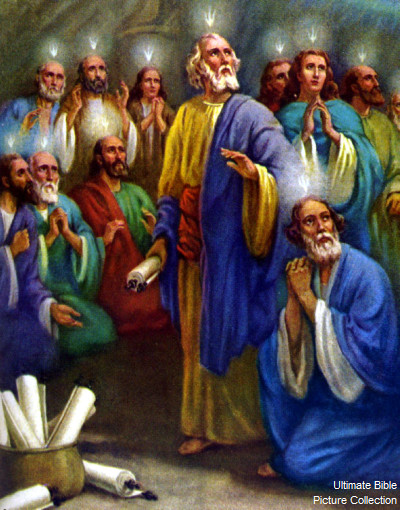
An Open Letter to a Friend About the Gift of Healing
It is the one and only Spirit who distributes all these gifts. He alone decides which gift each person should have.
1 Cor. 12:10-11
Dear My Brother in Christ:
Thank you for your email and for your willingness to discuss theological ideas with which you disagree. This freedom to understand our theological differences under the umbrella of inerrant scripture is one of the pleasures that I enjoyed about our common seminary experience.
Concerning your statement, “If you, or I, or someone we knew had the gift of healing and did not go to that hospital and heal all those sick boys and girls, what kind of monsters would we be?” Your concern is a real and common objection to the operation of the gift of healing today. Allow me to speak to your concerns.
We all long for the second return of Christ when suffering and sickness will be no more and the innocent will no longer suffer tragedy. Presently, we experience the now and not yet of the Kingdom of God, a foretaste of heaven, but not the kingdom’s full realization. The Kingdom is an advance sample of what life will be like when dwelling in God’s exquisite presence in heaven. In this life, the people of God will experience freedom from sickness and deliverance from oppression, but deliverance from all suffering will not occur until the second coming of Christ. Therefore, we eagerly anticipate Satan’s total overthrown and the complete restoration of this fallen world.
I would take exception to your idea that Charismatics claim to possess the gift of healing. We do not possess the gifts of the Spirit: the Spirit possesses us. When God, the Holy Spirit, sovereignly chooses to heal through the spiritual gifts, then and only then, will a man or woman be healed (1 Cor. 12:11). The gift of healing is not something we own. Only God, the Holy Spirit, can heal physical sicknesses and he alone chooses through whom he will operate.
I have prayed for hundreds of individuals through the years: some were instantaneously healed, and some were gradually healed, and some were not healed at all, but all who asked for prayer experienced God’s love and grace. Again, the timing and nature of God’s healing work is his sovereign choice.
Numerous times, Peter walked through the Temple gate and passed a crippled beggar, but on that particular day Peter was filled with faith and for the glory of God touched that broken man and he stood up and walked (Acts 3:6). No doubt other sick people were begging at that very gate on that very day, but God choose to heal only that one man on that particular day.
A few years ago, I prayed for woman who was diagnosed with breast cancer. We prayed on Saturday night before her anticipated surgery on Monday. Before the surgery, the doctors took one final X-ray before her procedure. When they did, the cancer was no longer apparent. She was medically verified as healed.
However, I prayed many hours for a friend, just a teenager, who was suffering from lymphoma. Despite all our prayers, the situation worsened. She passed away. Why God chooses to heal some while allowing others to pass is not a question I can answer. I do know that in the light of eternity, we will know that God was good and loving to both the healed and the needy. By his love and grace, the Lord had something greater for us and them (Heb. 11:39-40).
You stated, “Since there were no hospitals like we have today, all the sick were at home.†I beg to differ. In John five, Jesus visits the Pool of Bethesda. Scripture says that, “Crowds of sick people—blind, lame, or paralyzed—lay on the porches (v. 4). Jesus heals one man and one man only-the invalid who had lain there thirty-eighty years. There is no indication that anyone else was healed at that location.
Bethesda was an ill-equipped and ill-informed hospital compared to today’s standards. However, Jesus entered that ancient excuse for a hospital and healed only one individual.  Jesus said, “I assure you, the Son can do nothing by himself. He does only what he sees the Father doing. Whatever the Father does, the Son also does†(John 5:19). Evidently, the Father by his sovereign choice only desired to heal one person in that hospital on that day.
I will be the first to admit that there are many charlatans among us masquerading as divine healers. However, we cannot abandon the practice of praying for the sick even though some are abusing and misusing its practice (1 Thes. 5:19-22). When praying for the sick, I prefer the model that John Wimber of the Vineyard Movement developed: an off-the-stage, away from the cameras, unpretentious prayer ministry for the sick and needy.
In summary, believers do not possess the gift of healing: we are dependent on the Spirit’s enablement. Jesus did not clean out hospitals, but only obeyed his Father’s will when choosing who and when to heal. The timing of the healing dynamic is God’s and God’s perfect timing alone. Healing is an outgrowth of the Kingdom of God and the Kingdom will not be fully established in this world till Christ’s second coming (Rev. 11:15).
May God use you, my friend, to advance his kingdom and proclaim his most gracious gospel.
Christus Victor,
Fr. Glenn








